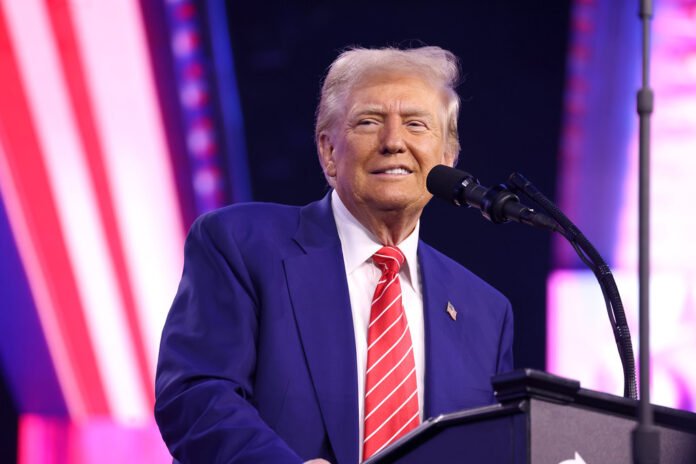Former Labor leader Bill Shorten has launched a scathing critique of Opposition Leader Peter Dutton, following the Coalition’s abrupt reversal of its proposed working-from-home policy. As the federal election approaches, Shorten has warned that the backflip reveals a deeper disconnect between the Coalition and average Australians.
Coalition Retreats on Public Service Policy
The controversy erupted on Monday when the Coalition officially abandoned its policy requiring “all” public servants to return to the office full time and also significantly scaled back its proposed cut of 41,000 Commonwealth jobs. Dutton, appearing on Nine’s Today program, acknowledged the misstep, stating, “We made a mistake in relation to this policy, and I think it’s important that we say that and recognise it.”
Several Coalition MPs echoed Dutton’s sentiment but blamed Labor for politicizing the issue. Shadow Treasurer Angus Taylor, appearing on ABC’s 7.30, admitted, “We think that was the wrong way of going about solving that problem.”
Shorten Calls the Reversal Desperate and Out of Touch
Shorten described the Coalition’s backpedaling as symptomatic of a larger issue: political desperation and poor judgment. “That’s absolutely the place you don’t want to be if you’re running an opposition campaign,” he said. “I thought they were more like ‘proof-of-life videos’, just saying, ‘please still think about us’.”
READ MORE: The One Change That Worked: I Quit Fighting About Politics With Friends and Family
He further argued that the Coalition’s stance on working from home reveals how out of touch they are with modern work realities, especially for Australians living in outer suburban areas. “It’s expensive catching the train or driving into work in the cities every day,” he said. “If families have the chance two days a week for one of the bread-winners to not have to spend literally thousands of dollars a year, and they can work from home using the new technology of the internet, that’s a cost-of-living measure.”
Shorten concluded by questioning the Coalition’s readiness to govern: “What worries me is it was a sort of a brain snap to have the policy—and from the people who brought you that, are they ready to govern? I think it was a red flag.”
Christopher Pyne Defends Dutton’s Admission
Former Coalition Defence Minister Christopher Pyne took a more measured view, supporting Dutton’s public admission of fault. Pyne argued that acknowledging mistakes reflects maturity rather than political weakness. He also highlighted Labor’s own policy reversals, including Shorten’s negative gearing policy, which was abandoned after the 2019 federal election defeat.
“I’ve seen some much worse backflips in my time,” Pyne said. “The negative gearing back flip from the Labor Party after the 2019 election stands out. It certainly doesn’t stand alongside ‘there will never be a carbon tax under any government I lead’, which was Julia Gillard back in 2013.”
Pyne added that the core message of the policy—that not all public servants are working as efficiently from home—resonated with some voters. “As backflips go … it’s done, it’s over, but I don’t think it leaves necessarily a very bad impression on most Australian voters.”
Global Trade Turmoil Presents Further Challenges for Dutton
In addition to domestic policy woes, Dutton now faces the broader challenge of navigating an uncertain global economic landscape. US President Donald Trump’s announcement of sweeping new tariffs under his “Liberation Day” regime has rattled global markets, sparking fears of a prolonged trade war. Australia, among the affected nations, now confronts potential economic consequences from deteriorating relations with both the US and China.
Prime Minister Anthony Albanese criticized the US move, stating that such tariffs were “not the actions of a friend.” Meanwhile, Australia’s response was being debated in the US House of Representatives as the new tariffs were set to take effect.
Pyne noted that such global instability often favors incumbents. “Economic uncertainty does favour the incumbent, and it’s come at a very difficult time for Peter Dutton and his team,” he said. “Economic uncertainty does lead people to not take a risk, and if they think the Albanese government is more solid than the Dutton opposition, this could be very unhelpful for Peter Dutton.”
However, Pyne also struck a note of optimism for the opposition. “But he still has a good month to prove to people that the Coalition has the policies for cost of living.”
Voter Sentiment in the Balance
As Australia moves closer to election day, the working-from-home policy debacle, combined with rising economic pressures from abroad, is likely to remain in the spotlight. For the Coalition, these challenges represent not just a need for clearer messaging but also a test of leadership.
Shorten’s criticism reflects a broader Labor narrative: that Dutton and his team are reactive rather than proactive, and out of touch with the modern challenges facing everyday Australians. Whether voters agree with that assessment could be a key factor in deciding the outcome of the election.
Meanwhile, the Labor government will continue to emphasize its response to global trade shifts, cost-of-living concerns, and public sector stability—positions they hope will portray them as the safer choice amid turbulent times.
